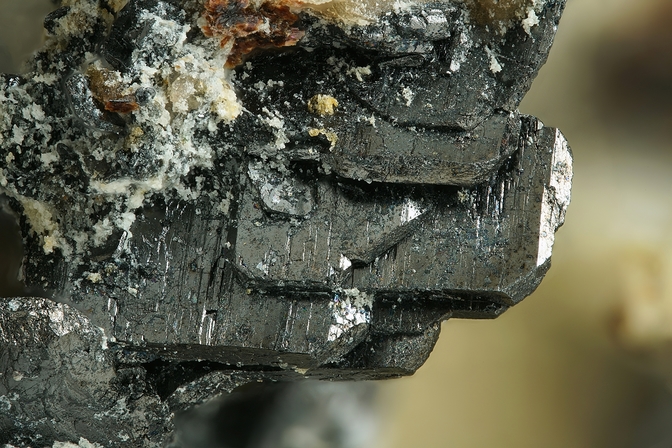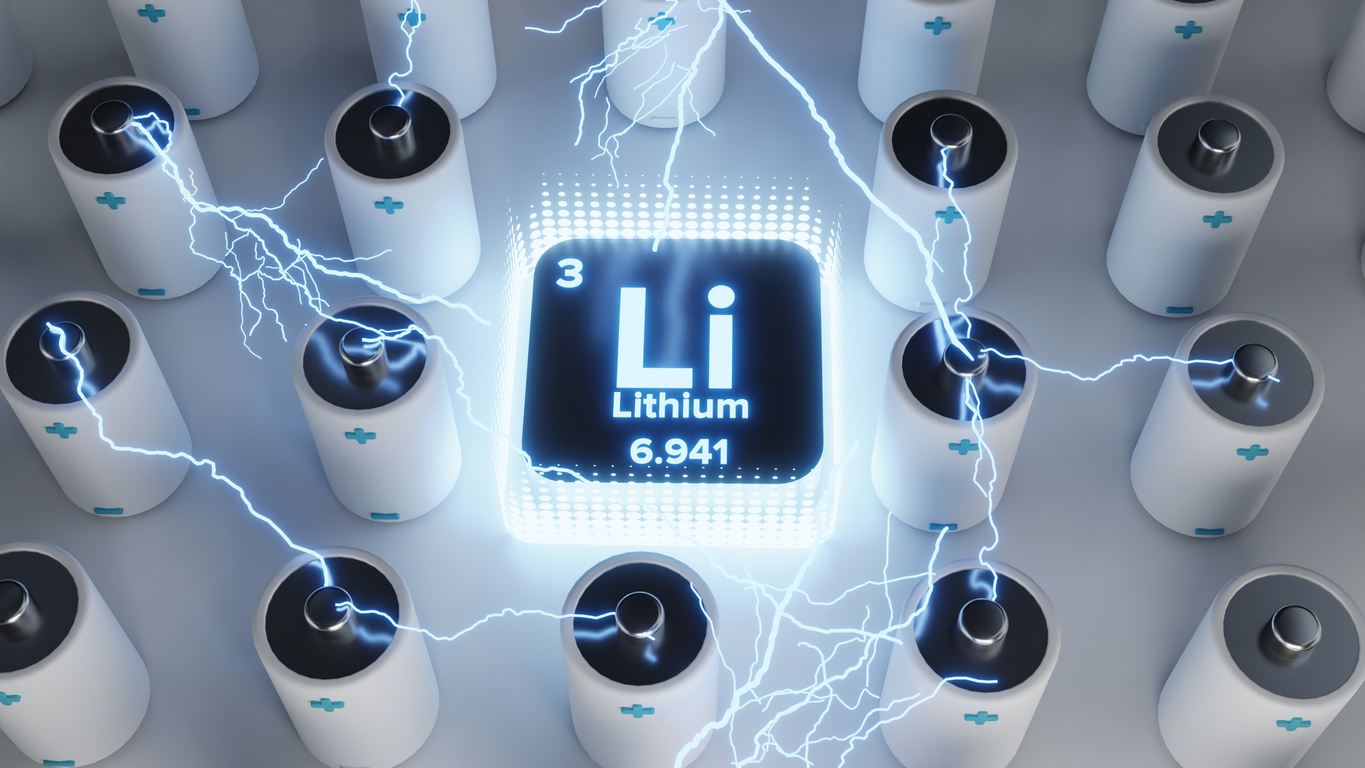From Mine to Market: Understanding the Journey of Columbite Ores & Concentrates
From Mine to Market: Understanding the Journey of Columbite Ores & Concentrates
Welcome, curious minds and adventurous spirits, to a captivating exploration of the hidden world behind one of Earth’s most intriguing minerals – columbite. Join us on an exciting journey from the depths of underground mines to the bustling markets where this extraordinary ore captivates countless industries. Prepare to be spellbound as we unravel the mysteries that lie within these precious rocks, discovering their remarkable uses and shedding light on their complex path from extraction to end product. So grab your mining helmets and embark with us on this riveting expedition into the fascinating realm of columbite ores and concentrates!
Introduction to Columbite Ores and Concentrates
Columbite ores and concentrates are an important mineral resource that plays a significant role in various industries. They are primarily composed of the minerals columbite and tantalite, which belong to the group of minerals known as tantalum-niobium oxides. These minerals have high economic value due to their unique properties, making them essential for the production of electronic devices, aerospace technology, and other advanced materials.
To understand the journey of columbite ores and concentrates from mine to market, it is crucial to first grasp their geological origins. These minerals are typically found in igneous rocks associated with granites or pegmatites, which are formed deep within the Earth’s crust under extreme heat and pressure. As these rocks cool and solidify over millions of years, they can form veins or layers rich in tantalum-niobium oxides.
The extraction process begins with mining operations where large-scale equipment such as excavators and haul trucks are used to extract ore-rich material from open-pit mines or underground tunnels. The extracted material is then crushed into smaller particles using crushers before being transported to processing plants. At this stage, the ore is still a mixture of different minerals and requires further refinement to separate out valuable elements such as tantalum and niobium.
The Mining Process of Columbite Ores
Columbite, also known as niobite, is a mineral ore that is primarily composed of niobium and tantalum. These elements are highly valuable for their unique properties and are essential components in the manufacturing of electronic devices such as smartphones, computers, and medical equipment.
The mining process of columbite ores involves several stages, each with its own set of challenges and considerations. Understanding this process is crucial in order to ensure the efficient production and supply of these valuable minerals.
1. Exploration
The first step in the mining process of columbite ores is exploration. This involves identifying potential deposits using various methods such as geological mapping, geophysical surveys, and satellite imagery. Once a promising site has been identified, further testing is conducted to assess the size and quality of the deposit.
2. Drilling
After a site has been identified for mining, drilling is carried out to obtain core samples from different areas within the deposit. These samples are then analyzed to determine the mineral composition and concentration levels.
3. Blasting
Once drilling has provided enough data on the deposit, blasting techniques are used to break up the rocks containing columbite ores into smaller pieces for easier extraction. This can be done through controlled explosions or with specialized machinery.
4. Crushing & Grinding
After blasting, the broken ore fragments are crushed into smaller particles using crushers or grinding mills. This process helps release any trapped minerals from within the rock matrix for easier separation later on.
– Extraction of the ore
Extraction of the ore is a crucial step in the journey of columbite ores and concentrates from mine to market. It involves a complex process of extracting the valuable mineral from the surrounding rock and other impurities. In this section, we will delve into the various methods used for the extraction of columbite ores and concentrates.
There are several techniques used for extracting columbite ores and concentrates, and these can vary depending on factors such as geological conditions, location, cost-effectiveness, and environmental considerations. However, broadly speaking, there are three main processes that are commonly used – open pit mining, underground mining, and dredging.
Open pit mining is the most common method used for extracting columbite ores and concentrates. This process involves digging a large open pit or surface excavation to extract the ore from shallow deposits near the surface. The first step in this process is to remove any overburden or topsoil covering the deposit using heavy equipment such as bulldozers or excavators. Once the overburden is removed, drilling rigs are used to create holes in which explosives are placed to break up large blocks of rock containing columbite ore. The broken ore is then loaded onto trucks or conveyor belts and transported to a processing plant for further crushing, grinding, and separation.
– Purification and processing
Purification and processing are crucial steps in the journey of columbite ores and concentrates from the mine to the market. This stage involves various techniques and processes that aim to remove impurities, increase the concentration of valuable minerals, and prepare the material for its intended use.
The first step in purification is often crushing and grinding. The raw ore or concentrate is crushed into smaller pieces and then ground into a fine powder. This increases the surface area of the material, making it easier for subsequent processes to extract valuable minerals.
Next, physical separation techniques such as gravity separation, magnetic separation, and froth flotation are used to separate different minerals based on their physical properties. For example, magnetic separation can be used to separate iron-bearing minerals from columbite ores.
Once physical separation has been completed, chemical methods may be employed to further purify the material. One common technique is leaching, where a solvent is used to dissolve specific minerals while leaving others intact. This process is often used when dealing with complex ores containing a variety of different minerals.
After leaching, the resulting solution may undergo further processing through precipitation or ion exchange techniques to isolate specific elements or compounds. These methods can help increase the purity of columbite ores and concentrates by removing any remaining impurities.
The Role of Wigmore Trading in the Supply Chain
The supply chain is a crucial aspect of any industry, and the columbite ore and concentrate market is no exception. It involves various stages, from mining to processing, transportation, and ultimately reaching the end consumer. In this journey, there are many players involved, each with their unique roles and responsibilities.
One such key player in the supply chain of columbite ores and concentrates is Wigmore Trading. This company plays a vital role in ensuring that these valuable minerals reach their intended destination efficiently. In this section, we will discuss the role of Wigmore Trading in the supply chain and how it impacts the overall industry.
Wigmore Trading is a leading global trading company that specializes in sourcing and supplying various minerals, including columbite ores and concentrates. The company has established strong partnerships with reputable mines and suppliers across Africa to ensure a consistent supply of high-quality minerals.
One of its primary roles in the supply chain is to act as an intermediary between miners/suppliers and buyers. As an experienced middleman, Wigmore Trading has extensive knowledge about the market demand for columbite ores and concentrates. This enables them to advise miners on which products are most sought after by buyers globally.
Moreover, as an established trading company with years of experience handling these minerals’ logistics, Wigmore Trading ensures that all necessary documentation for international trade compliance is complete before shipping out consignments to various destinations worldwide. This includes obtaining necessary export permits from relevant authorities to avoid any bureaucratic delays or legal issues during transit.
Benefits and Uses of Columbite Ores & Concentrates
Benefits and Uses of Columbite Ores & Concentrates
Columbite ores and concentrates are a valuable mineral resource that has various benefits and uses in different industries. They are primarily composed of columbium, which is also known as niobium, and tantalum. These minerals have unique properties that make them highly sought after in the global market. In this section, we will delve into the benefits and uses of columbite ores and concentrates.
1. Industrial Applications:
Columbite ores and concentrates have a wide range of industrial applications due to their unique physical and chemical properties. They are used in manufacturing superalloys, which are high-strength materials used in the aerospace industry for jet engines, gas turbines, and other critical components. Niobium enhances the strength and heat resistance of these alloys, making them ideal for use in extreme conditions.
Additionally, columbite ores and concentrates are used in the production of corrosion-resistant metals such as stainless steel. The addition of niobium to steel increases its resistance to corrosion by acidic environments such as seawater or chemicals.
2. Electronic Industry:
The electronic industry is one of the largest consumers of columbite ores and concentrates globally. Tantalum, a component found in these minerals, is essential for making capacitors – an integral part of electronic devices such as smartphones, laptops, tablets, etc.
Challenges and Controversies surrounding Columbite Mining
Columbite, also known as niobite or niobium-tantalum ore, is a valuable mineral that is primarily used in the production of high-strength and low-weight alloys. It is found in various parts of the world, with the majority of its production taking place in countries such as Australia, Brazil, Canada, and Nigeria.
However, despite its importance and demand in various industries, columbite mining has been surrounded by several challenges and controversies. In this section, we will explore some of the major issues faced by the columbite mining industry.
1. Environmental Impact
One of the biggest challenges faced by columbite mining is its significant impact on the environment. The extraction process involves digging deep into the earth’s surface and using heavy machinery to separate out the ore from other materials. This can result in deforestation, soil erosion, and contamination of water bodies due to chemical runoff.
Moreover, columbite mining also produces a significant amount of waste material called tailings. These tailings often contain harmful chemicals and radioactive elements such as thorium and uranium that can leach into surrounding areas if not properly disposed of. This poses a threat to both human health and local ecosystems.
2. Child Labor
Another major controversy surrounding columbite mining is the use of child labor in some regions where it is produced. According to a report by Amnesty International, children as young as seven years old are involved in hazardous work conditions at mines in countries like Congo and Rwanda.
Environmental Impact of Columbite Mining
Columbite, also known as niobite or niobium-tantalum ore, is a valuable mineral used in various industries such as electronics, aerospace, and medical equipment. However, the process of mining columbite can have significant environmental impacts that need to be considered and mitigated.
One of the main environmental concerns associated with columbite mining is deforestation. In order to access the mineral deposits, large areas of land need to be cleared for open-pit mines or underground tunnels. This can lead to the destruction of natural habitats and disruption of wildlife populations.
Another major issue is soil erosion and water pollution. Mining activities often involve digging up and moving large amounts of earth, which can result in sediment runoff into nearby water sources. This not only harms aquatic life but can also affect the quality of drinking water for nearby communities.
The use of heavy machinery in columbite mining also contributes to air pollution. The extraction process releases dust particles into the air which can cause respiratory problems for workers and nearby residents. Moreover, carbon emissions from diesel-powered equipment contribute to climate change.
In addition to these direct impacts on land, water, and air quality, columbite mining also has indirect effects on the environment through its contribution to global warming. The production of minerals like columbite requires a significant amount of energy which often comes from fossil fuels. This releases greenhouse gases into the atmosphere contributing to climate change.
How to Ensure Ethical Sourcing of Columbite Ores & Concentrates
Ethical sourcing of columbite ores and concentrates is crucial for the responsible production and trade of this mineral. Columbite, also known as niobite, is a valuable source of niobium, which is used in various industries such as aerospace, electronics, and construction. However, the extraction and trade of columbite have been linked to human rights abuses, environmental degradation, and corruption in some parts of the world.
To ensure ethical sourcing of columbite ores and concentrates, it is essential to understand the journey from mine to market. This section will discuss some key steps that can be taken to promote ethical practices throughout this journey.
1. Conduct thorough due diligence:
The first step towards ensuring ethical sourcing of columbite ores and concentrates is to conduct thorough due diligence on suppliers. This includes researching the origins of the material, their mining practices, labor conditions at mines, and any potential social or environmental impacts. Companies should also check if their suppliers have any history of involvement in human rights abuses or corruption.
2. Implement responsible sourcing policies:
Companies should establish responsible sourcing policies that clearly outline their commitment to ethical practices in the supply chain. These policies should cover all aspects related to mining operations, including labor standards, health and safety protocols, environmental protection measures, and community engagement.
Conclusion:
Conclusion:
The journey of columbite ores and concentrates from mine to market is a complex process that involves multiple steps and stakeholders. It begins with the extraction of columbite ore from mines, which is then processed into concentrates through various techniques such as crushing, grinding, and magnetic separation. These concentrates are then transported to smelters where they undergo further processing to obtain pure columbite.
Throughout this journey, there are many challenges and issues that need to be addressed in order for the industry to function smoothly. One of the major concerns is the impact on the environment due to mining activities. The extraction of columbite ore can lead to deforestation, soil erosion, water pollution, and displacement of local communities. Therefore, it is important for mining companies to prioritize sustainable practices and minimize their environmental footprint.
Another issue is the exploitation of labor in some regions where columbite mining takes place. In countries like Congo, child labor and hazardous working conditions are prevalent in artisanal mining sites. This not only violates human rights but also hinders economic development in these areas.
Furthermore, the processing and trading of columbite have also been linked with corruption and illegal activities such as smuggling and tax evasion. This not only affects the credibility of the industry but also leads to lost revenue for governments.








Comments are closed.